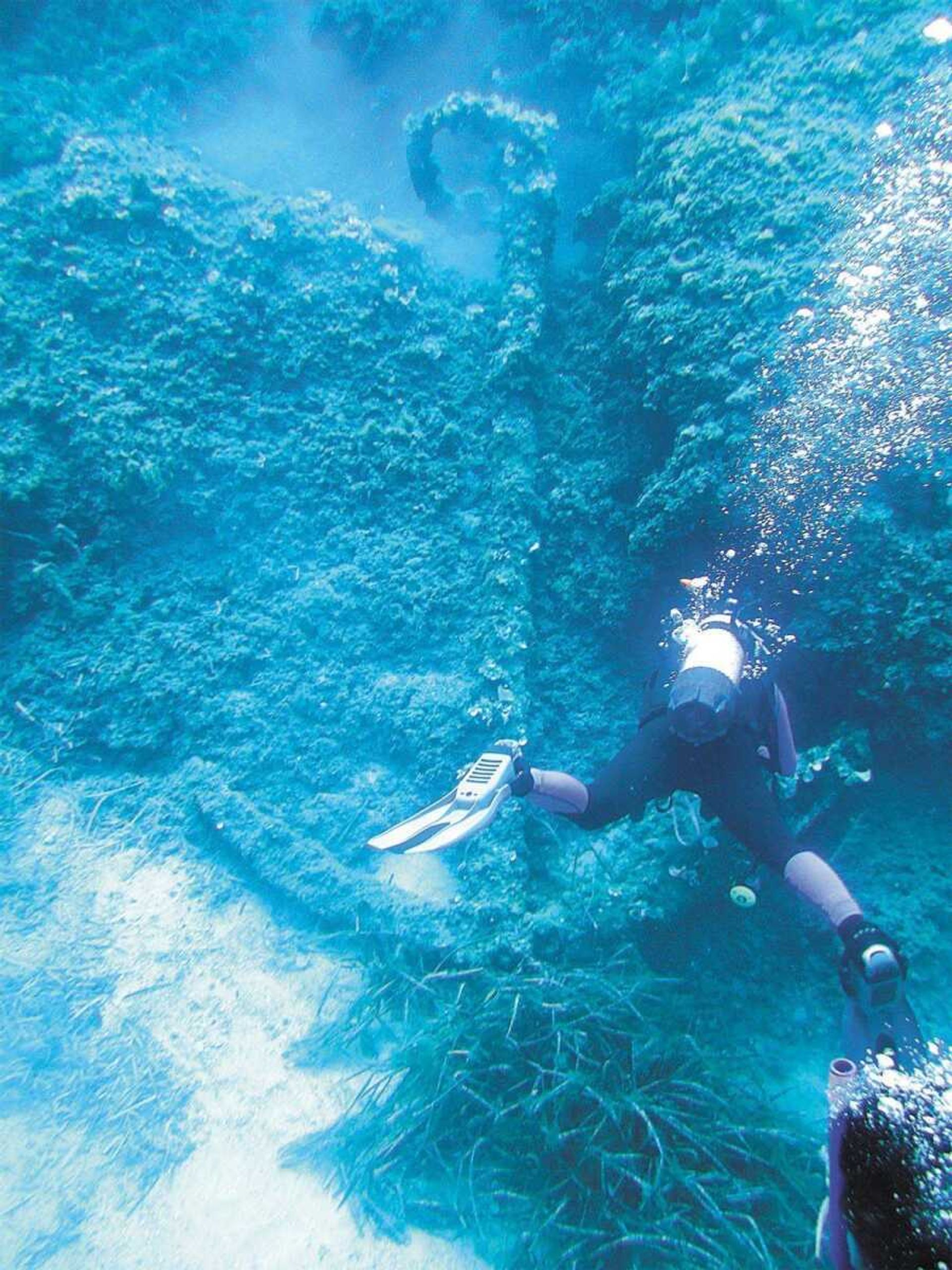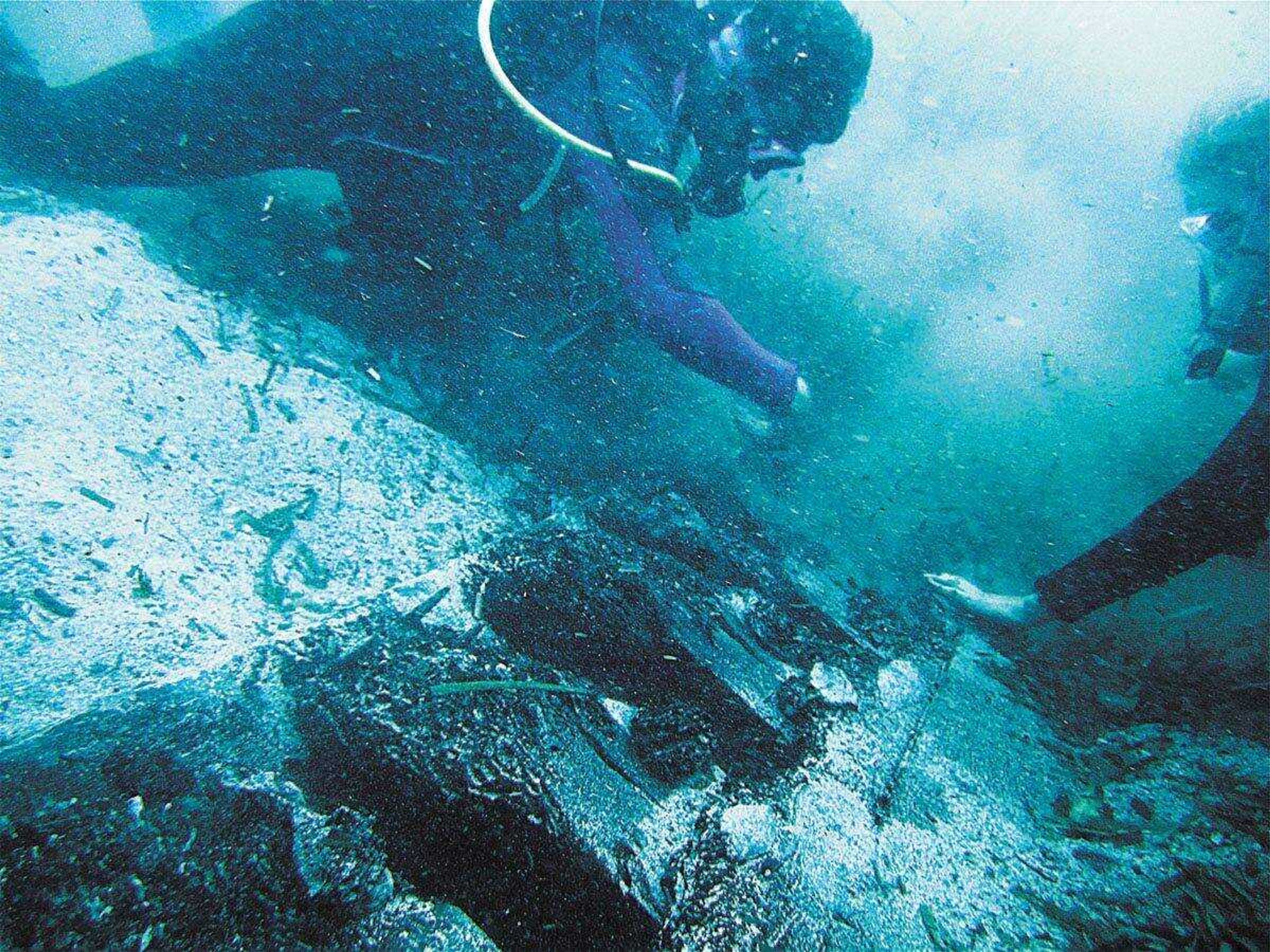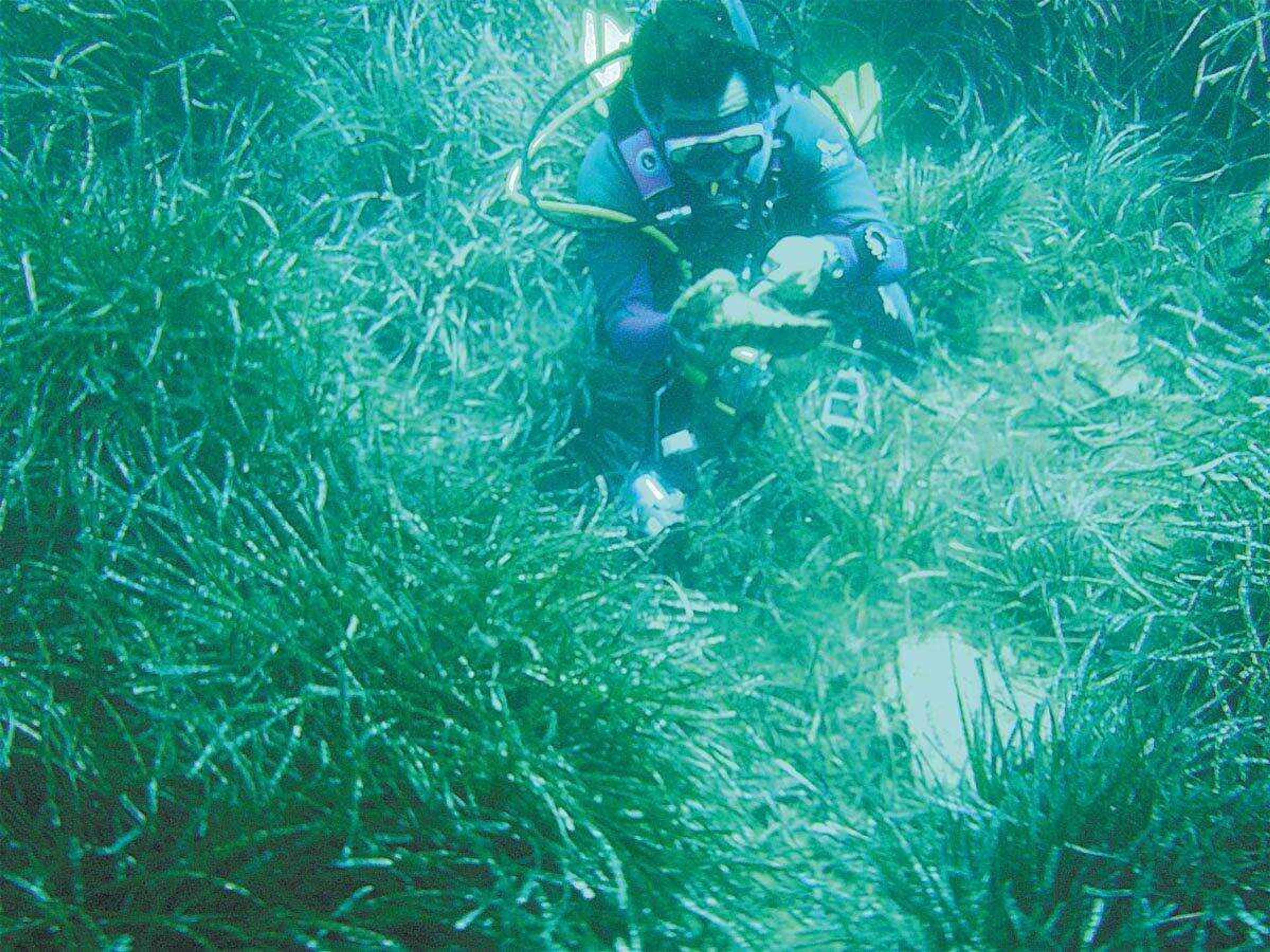Uncovering shipwrecks: Students help discover 16th-century warship
They were off to a rough start. The July day broke rainy and cold. And the boat's battery had died overnight. After a jump-start from an old van caused a lengthy delay, the boat's crew, including Southeast Missouri State University anthropology student Jennifer Rickard, was finally ready to go. Waves rocked the small boat as seven wet-suit clad divers loaded it with heavy oxygen tanks and equipment...
They were off to a rough start.
The July day broke rainy and cold. And the boat's battery had died overnight.
After a jump-start from an old van caused a lengthy delay, the boat's crew, including Southeast Missouri State University anthropology student Jennifer Rickard, was finally ready to go. Waves rocked the small boat as seven wet-suit clad divers loaded it with heavy oxygen tanks and equipment.
Rickard and the rest of the team finally took off from the coast of Menorca, a Spanish island in the Mediterranean Sea. It was not the ideal way to begin the divers' second-to-last day of underwater excavation. And it would get worse before it got better.
The divers made their way out to sea and began to survey a potential dig site. A rough patch of water caused the boat to lurch, sending a $400 piece of lighting equipment overboard.

"We're all just watching it in slow motion," said Rickard, a sophomore. After waiting over an hour for their instructor to resurface after retrieving the equipment, the group decided they must carry on.
"We had to proceed with the survey," she said. "We only had so much time and it was already cut short for our instructor after using an hour of oxygen."
They dove in.
The discovery
Earlier research had indicated this was the place to be. Rickard's instructor waved them on to continue their search, and they swam over vast expanses of seaweed on the floor of the Mediterranean Sea. Then they spotted a telling anomaly.

"There was so much seaweed over such large areas," Rickard said. "To not see any in an area was a huge marker."
The divers dug hands and then arms into feet of dead seaweed until they felt something much harder than the vegetation. When they pulled their hands back, they noticed black markings on their gloves.
"I just started screaming into my regulator, which wastes oxygen really fast, but I was excited," Rickard said. "We were all really excited."
They had uncovered a small portion of a charred shipwreck, which initial tests have shown might date back to the 16th century, when many ancient battles for the control of Menorca's ports took place.
George Costanza journey
Rickard, an anthropology student with an emphasis in maritime, or underwater, archaeology, is back on dry land -- for the time being.
Rickard relocated from Denver to her father's hometown of Cape Girardeau with her now 9-year-old son in tow. Nineteen years old and lacking direction and discipline, she completed three semesters of class before dropping out to work.
She took over her father's portion of ownership of Two North, now under different management and known as Mixing 10, on Main Street. She worked the bar scene there for three years before selling her share.
"I learned the bar culture in Cape while I was there," Rickard said. "I would see friends graduate and leave and I'd miss them. When they came back they'd be like 'Jen, you're still here.' I didn't want to miss people, I didn't want to grow old in a bar."
After leaving Two North, Rickard worked a string of jobs, juggling up to three of them at once at one point. However, she was not happy with a future of dead-end jobs and set about changing the attitudes and habits that were holding her back.
"I was a juvenile delinquent," Rickard said as she explained an unstable childhood and adolescence littered with poor grades and decisions.
"I spent years feeling like I was hitting my head against a wall," Rickard said. "I was tired of starting from scratch over and over again. I came to the realization that I'm doing this to myself. If I'm doing it to myself then I cannot do it to myself."
This realization led her to adopt the "George Costanza Theory of Life," or doing exactly the opposite of what your instinct tells you to do.
"I was watching 'Seinfeld' and I was like, I'm really going to adopt this," Rickard said. "It became a retrained instinct."
Rickard's retrained instinct lead her back to the classroom.
"I walked into an anthropology class and thought, this is what I've been thinking all along," Rickard said. "I hit the direction of anthropology and realized this is exactly what I wanted to do. It all fell into place exactly as it was meant to be. All those missteps led to exactly where I wanted to be."
Her plans
Now on her second college endeavor, Rickard is working toward a bachelor's degree. Like many archaeology students, she participates in field studies that provide students with experience in their field that they cannot obtain on Southeast's campus.
It was on one of these field studies during July to the Cape of Cavalleria Ecomuseum where she was part of a team that discovered a previously untouched shipwreck. Her trip to Spain was funded by a scholarship from the Harryette Campbell Scholarship Foundation. Rickard has plans to attend another field study in the Bahamas.
Rickard's passion for anthropology is evident in her involvement in the department at Southeast. She spends a lot of her down time in Art Building, where the department is housed, talking about news from the archaeology world and trading stories that most of her friends outside the major cannot appreciate. Rickard also serves as secretary for the anthropology club and encourages students that are interested in archaeology to talk to her about her experience with field studies.
"I just want to encourage students to go out and do these types of things," Rickard said. "What I'm excited about is getting other people to understand they can do it too."
She also serves as a teacher's assistant for Dr. Warren Anderson, a professor of anthropology.
"He's kind of like my mentor," Rickard said about Anderson. "He has an open door ready for students to come in and talk to him. He was one of the reasons I realized there was a whole different way that school could be."
Rickard has also been taking helicopter lessons at the Cape Girardeau Regional Airport. Though her flying skills come in handy when researching dig sights for herself and fellow archeologists, she hopes to eventually earn a pilot license that will allow her to fly for hire. The income will go toward pursuing a master's degree in maritime archaeology.
"The ultimate goal for me is to do deeper, underwater research with video." Rickard said. "There are a plethora of different types of information we could be using to learn about ourselves and our culture."
She speaks of the tales of long-lost underwater civilizations like Atlantis and her interest in discovering the root of such stories.
"These stories had to come from somewhere." Rickard said. "These myths might have some sort of truth behind them. I truly believe it is in the water."
Connect with the Southeast Missourian Newsroom:
For corrections to this story or other insights for the editor, click here. To submit a letter to the editor, click here. To learn about the Southeast Missourian’s AI Policy, click here.










